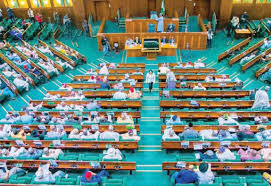Emotional Plea from Obasanjo: Tackling Nigeria’s Escalating Poverty and Hunger Crisis
Former Nigerian President Olusegun Obasanjo delivered a heartfelt address on the deepening challenges of poverty and hunger plaguing millions across the country.
In a video statement, he expressed profound concern over the situation, describing it as a dire threat to basic human survival and dignity that has escalated in recent times.
With visible emotion, Obasanjo shared a personal moment of reflection, stating, “Forgive me, this is the first time I’m shedding tears of my own.”
He highlighted the alarming intensity of the crisis, labeling the level of deprivation in various regions as “extremely, extremely severe” and a direct risk to people’s health and humanity.
Obasanjo urged the public to distinguish between relative poverty and absolute hunger. Using a simple analogy, he explained, “Someone riding a bicycle might seem poor next to someone in a car, but the real crisis is when people can’t even meet their basic needs like food.”
This, he argued, requires immediate action to address the root causes of objective poverty, including widespread hunger.
Drawing from his own experiences, Obasanjo reminisced about his village upbringing, where resources were scarce but families never faced starvation. “We might have had garri for breakfast, garri for lunch, and perhaps pounded yam for dinner,” he recalled. “But nowadays, many families are uncertain about their next meal.”
To combat this, he emphasized the need for equitable resource distribution, asserting that the world has enough abundance from nature, but unequal exploration, exploitation, and sharing exacerbate both poverty and hunger.
In his view, solving these issues begins with a deep understanding of their origins and effects. “To truly resolve a problem, you must grasp its roots and consequences,” he said, pointing to systemic injustices in how opportunities and natural resources are managed.
Education emerged as a central theme in Obasanjo’s message, which he described as the “most powerful tool” for overcoming poverty.
He argued that without access to quality education, individuals and nations remain stunted, unable to progress or compete globally.
Beyond education, Obasanjo called for a transformation in leadership. He advocated for leaders rooted in moral integrity, community values, and a sense of shared responsibility, rather than mere political motives. “True leadership begins at home and scales to the nation,” he noted, invoking the African philosophy of interconnectedness: “I am because we are.”
In concluding his remarks, Obasanjo inspired hope, reminding Nigerians that every person is born with inherent potential. When nurtured through opportunities, he said, individuals can uplift themselves, their families, and the entire nation.




